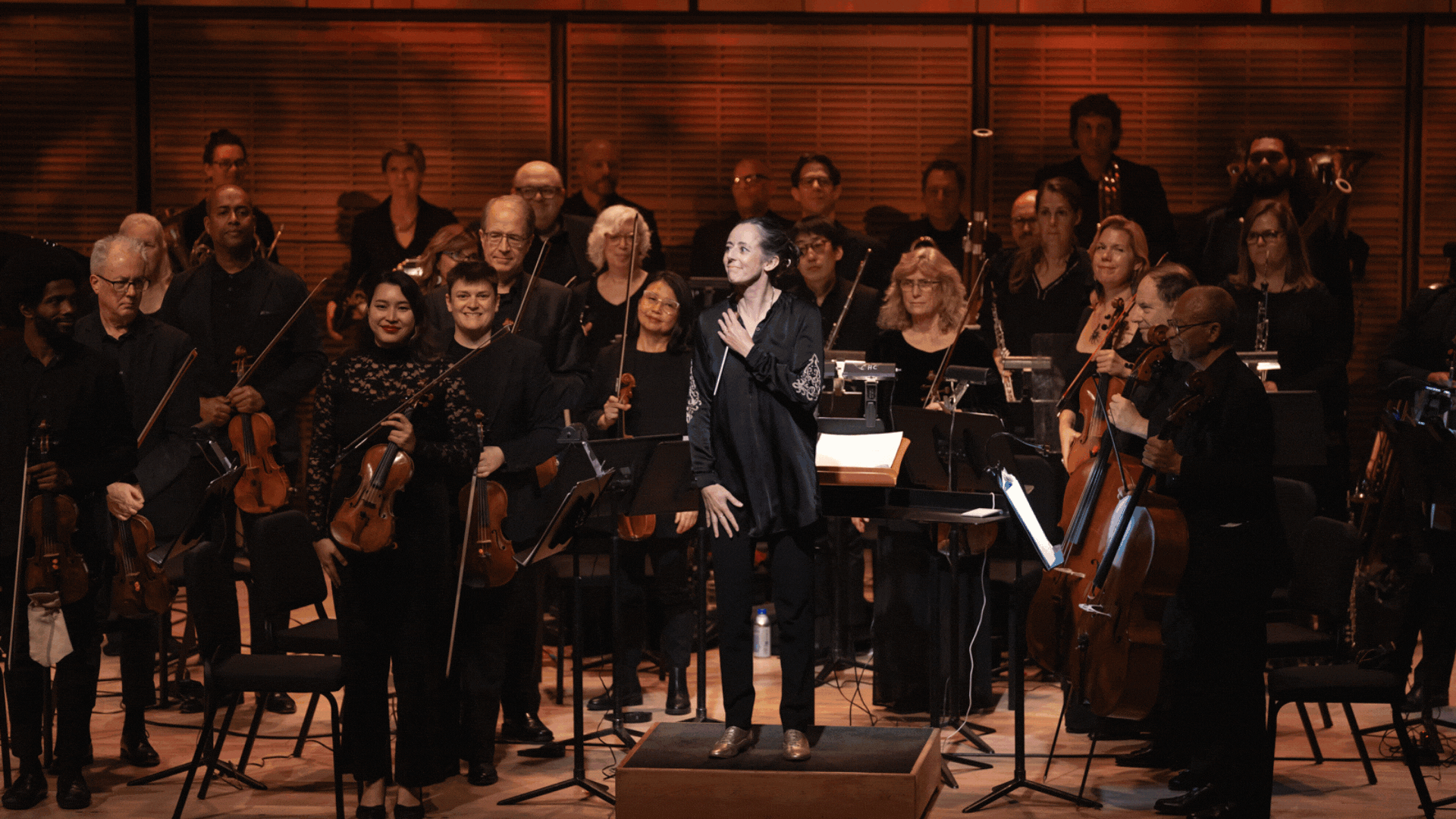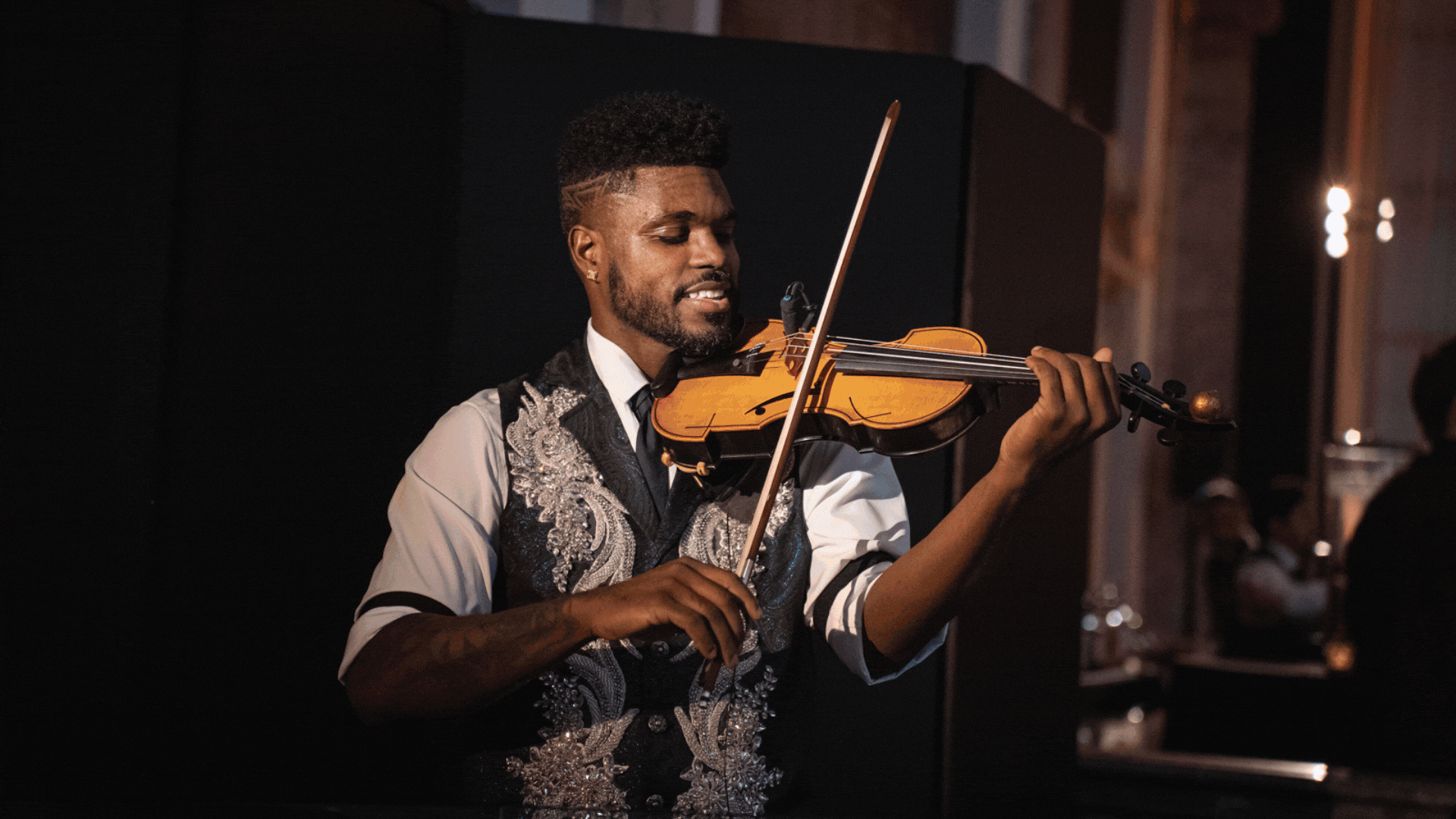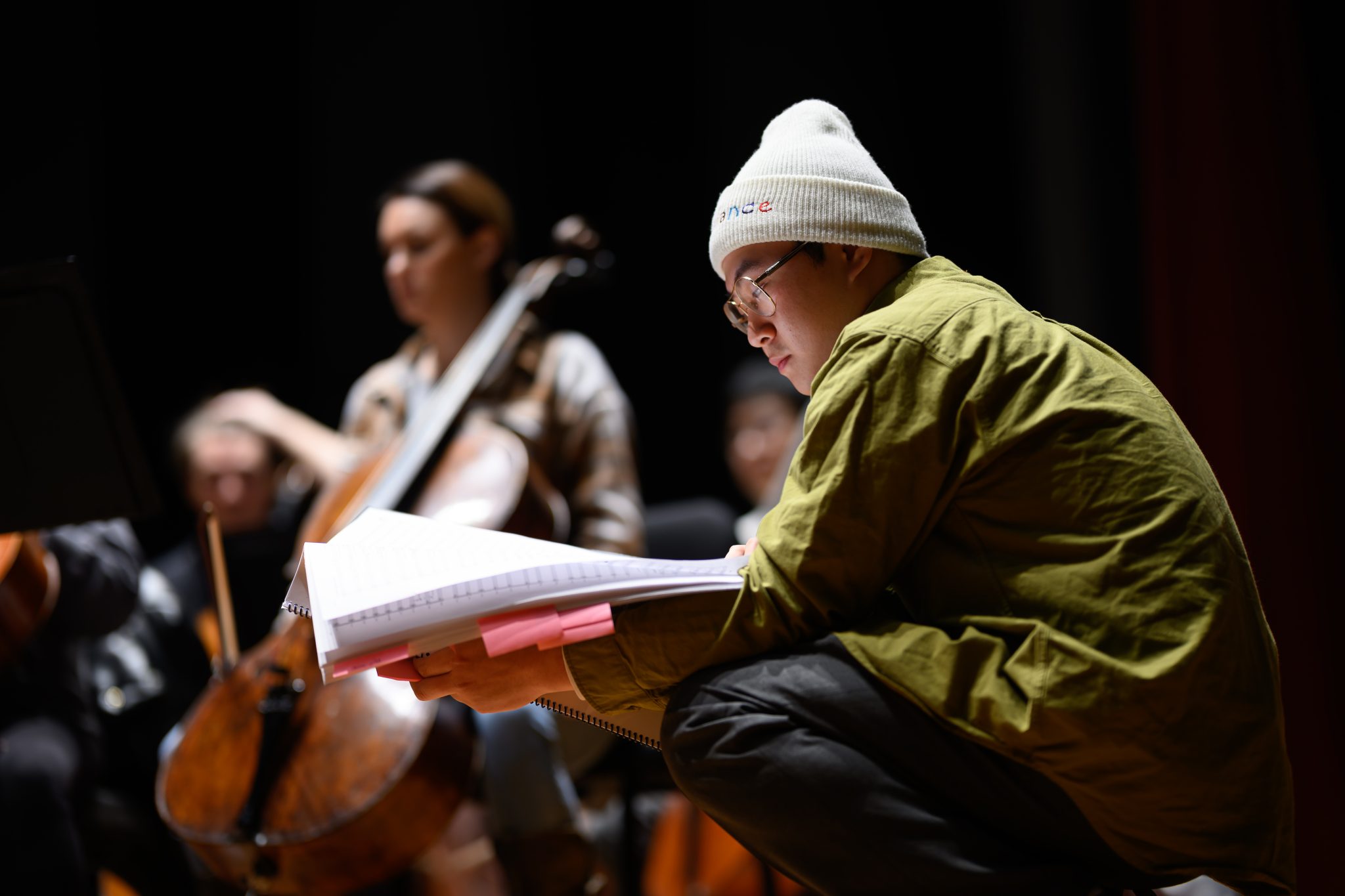Imported item 305



Day two of the EarShot experience has ended. It was a great day packed with activities. Here is what happened:
In the morning we gathered at Copley Hall for our final meetings with maestro Feddeck where we discussed our errata lists and other issues we wanted addressed in the final reading session. We were all quite nervous, I think, hoping the aspects that did not gel yesterday would come together today.
As we soon found out, however, there was no reason to be nervous. The orchestra sounded even better than yesterday! In today's public reading session the composers spoke briefly about their work before the maestro rehearsed a few spots and performed a full run-through, which was recorded. All of the great qualities of each work I described yesterday were even more pronounced today and we were all very happy with the results. My piece came a long way in just 24 hours thanks to the furious errata work by the SDS librarians and maestro Feddeck's wonderful leadership. All in all, I could not be happier with the performance!
After the readings we met with the mentor composers and maestro Feddeck for an "Aesthetics feedback session" where we discussed overall effectiveness, formal concerns and other compositional issues. Our mentor's comments were right on point and very helpful. For my piece everyone was complimentary and supportive before giving constructive feedback on ways to improve. The mentors and maestro Feddeck articulated specific ways to edit in places I knew something was lacking, but could not quite put my finger myself.
The rest of the afternoon consisted of an informative professional development workshop comprising of a presentation on copyright law by Corey Field, an overview of support systems for composers by New Music USA president Ed Harsh and a crash course in MOLA score and part preparation by principal librarian Courtney Cohen. Finally, the day ended with a panel discussion of issues relevant to young composers by our illustrious mentors.
While the events an sounds of the past two days are still sinking in, I can undoubtably say the this was an amazing experience I will benefit from for my entire compositional career. The greatest lessons in composing for the orchestra are learned in the process of having music performed, especially read by top-notch musicians like those at the SDS. However, one's compositional and orchestration chops are only half the story. How composers present themselves and thief music is just as important and having well prepared, well thought-out scores and instrumental parts is essential for a successful work.
I cannot thank the San Diego Symphony, maestro James Feddeck, our mentor composers and the ACO enough for this invaluable experience. I sincerely hope the EarShot program will continue to grow in the coming years!
Corporate gifts to match employee contributions are made by Goldman Sachs, Deutsche Bank, Triton Container International Incorporated of North America, and Neiman Marcus.
Public funds are provided by the New York City Department of Cultural Affairs in partnership with the City Council, and the New York State Council on the Arts with the support of Governor Kathy Hochul and the New York State Legislature, Office of Brooklyn Borough President Reynoso, and the National Endowment for the Arts.






